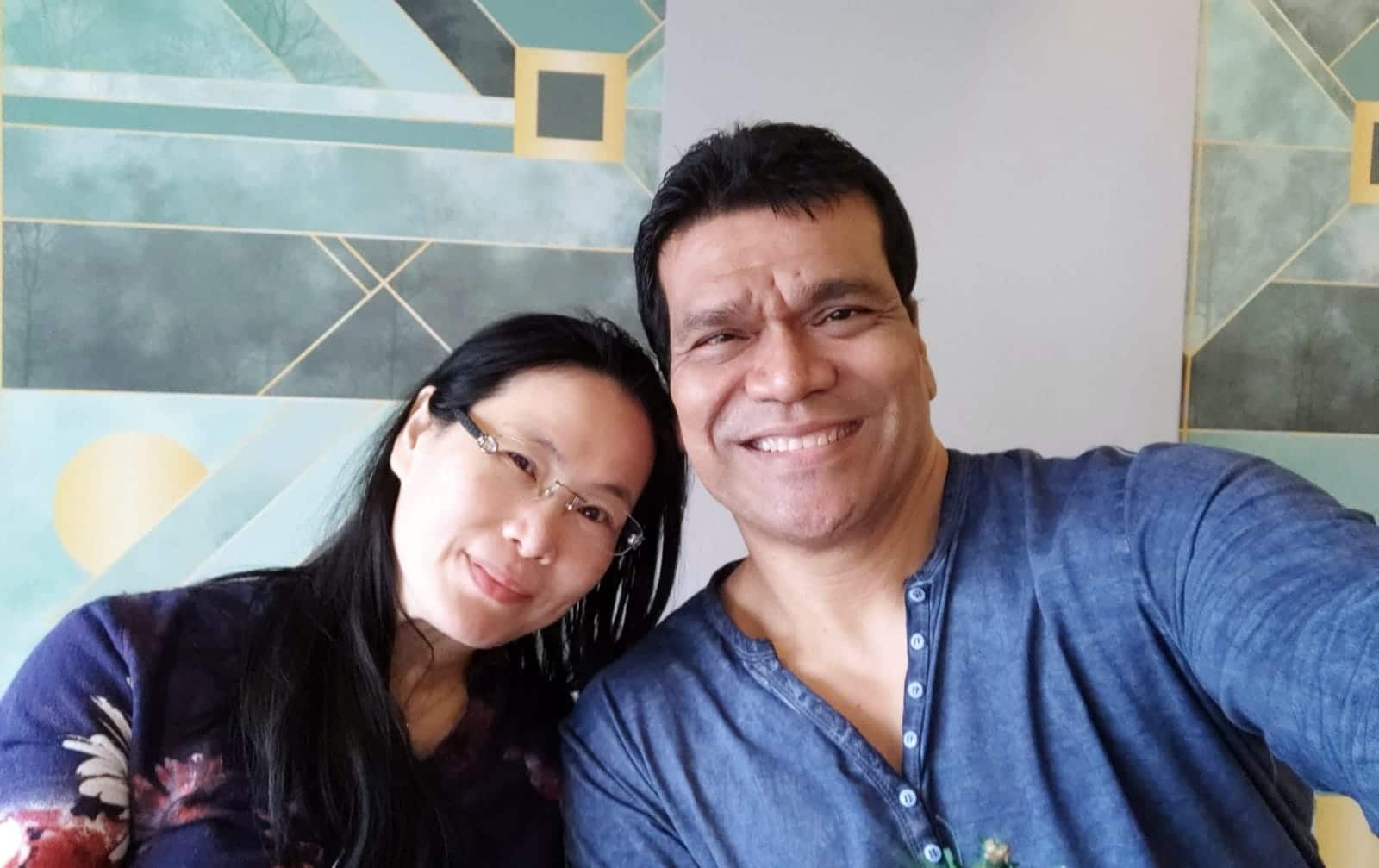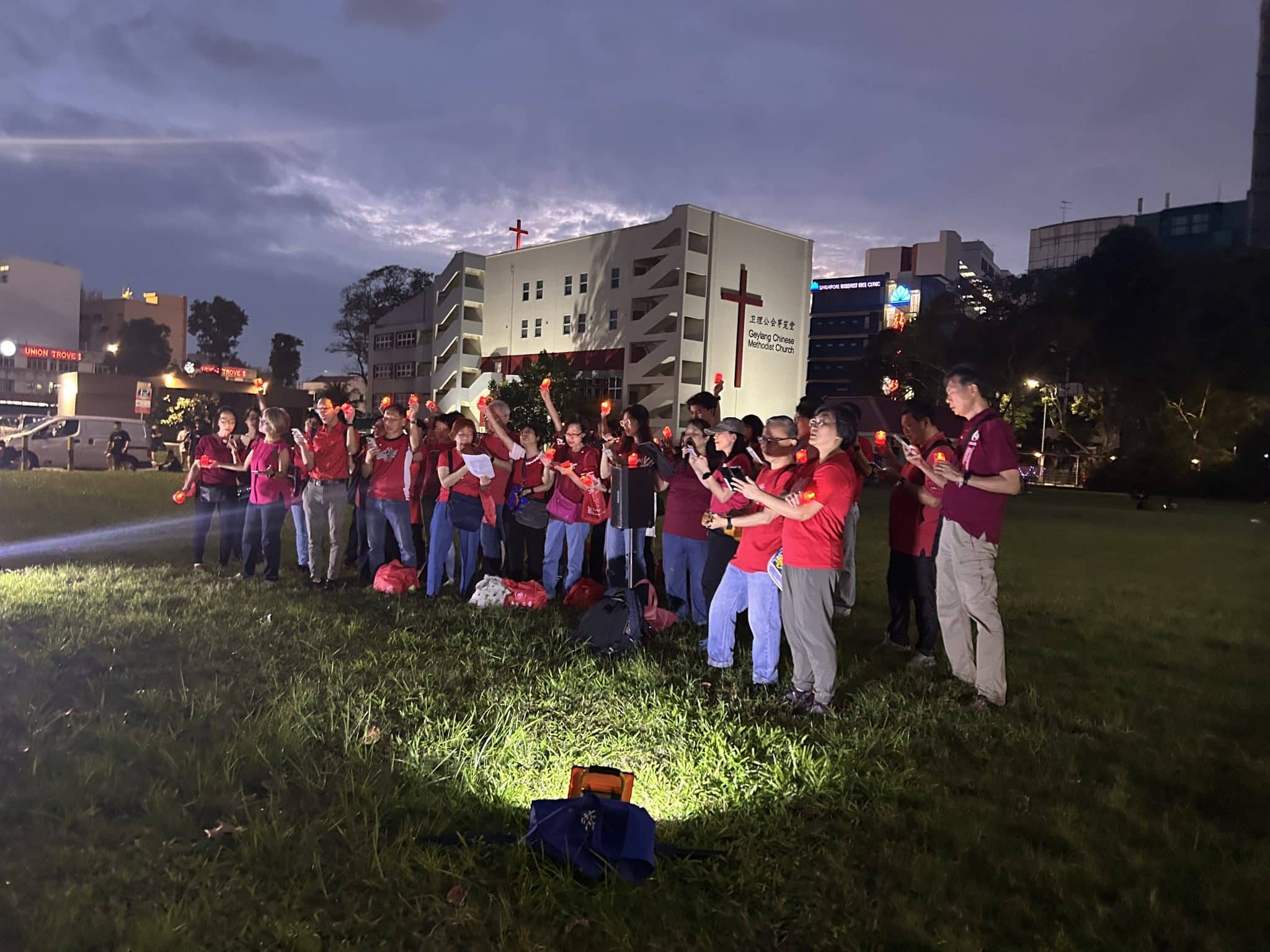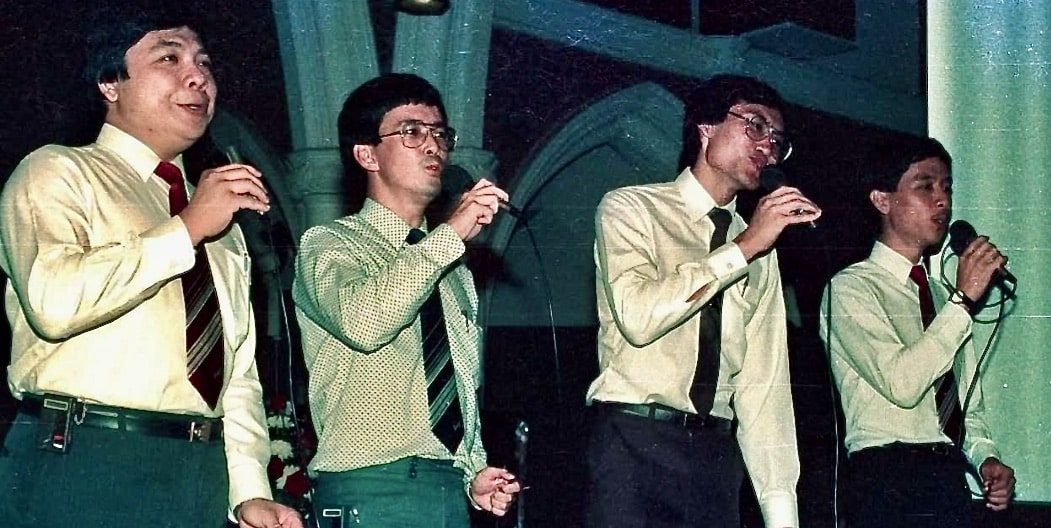“It’s an answer to a prayer I wrote at 19”, says 27-year-old who is refreshing heritage brand CYC
by Gemma Koh // August 22, 2020, 1:39 am
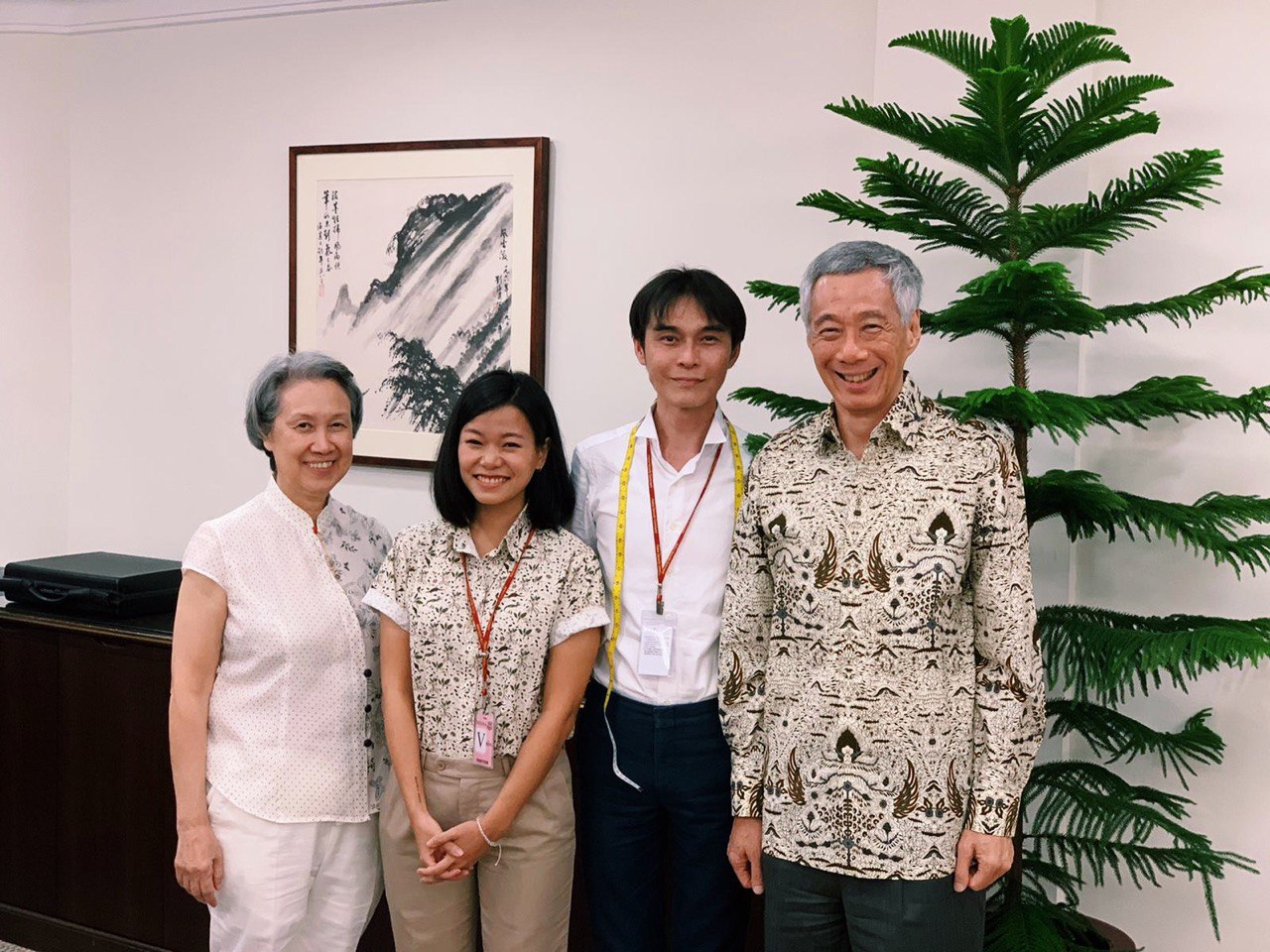
Cara Chiang, fourth generation scion of tailoring business, CYC, with sales manager Ruys Poh, visiting PM Lee Hsien Loong and Mdm Ho Ching at the Istana in 2019 to update the PM's shirt measurements. All photos courtesy of Cara Chiang and CYC.
Think of the iconic 85-year-old Singapore brand, CYC, and a picture of made to measure shirts favoured by prominent CEOs, politicians and state leaders comes to mind.
But Cara Chiang, 27, has been injecting a fresh and contemporary tone to the tailoring business founded by her great-grandfather, Chiang Yick Ching, whose initials form the name of the company.
For CYC’s submission to Singapore Stories, a competition by the Textile and Fashion Federation (Taff) Singapore to find a national identity through dress, Chiang submitted a collection inspired by the clothes of migrants from the 1930s – like her great grandparents – and what they may have felt on their arduous boat journeys to Singapore. She is one of the five finalists.
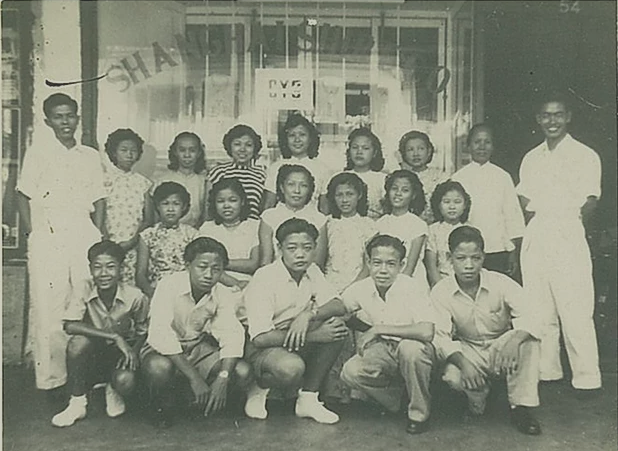
Chiang is the latest in a line of strong women in the family business. It started with her great-grandmother, Foo Ah Neok (middle, with the company’s first employees in the 1930s), who led the business when her husband passed away.
Researching the collection took Chiang, who is CYC’s product development and marketing manager, to the Chinatown Heritage Museum. It opened her eyes to the backbreaking nature of the work of Singapore’s early migrant workers, and the vices like opium, alcohol and gambling they found solace in.
“After day in day out non-stop work, they needed an outlet to be happy, and they chose vices. I felt quite sad for them that they had to sacrifice so much to come to work in Singapore, only to be hooked on vices.”
The collection is also Chiang’s ode, a thank you, to the sacrifices they made.
Fresh eyes
Chiang is mentored by her aunt and managing director of CYC, Fong Loo Fern (nee Chiang), who is also chairman of Methodist Welfare Services.
Apart from “getting a free shirt now and then”, Chiang didn’t grow up in the business.
Fresh out of the University of Melbourne with an arts degree with a double major in screen and cultural studies and creative writing, she returned to Singapore looking for job openings.
She approached her aunt, not expecting anything.
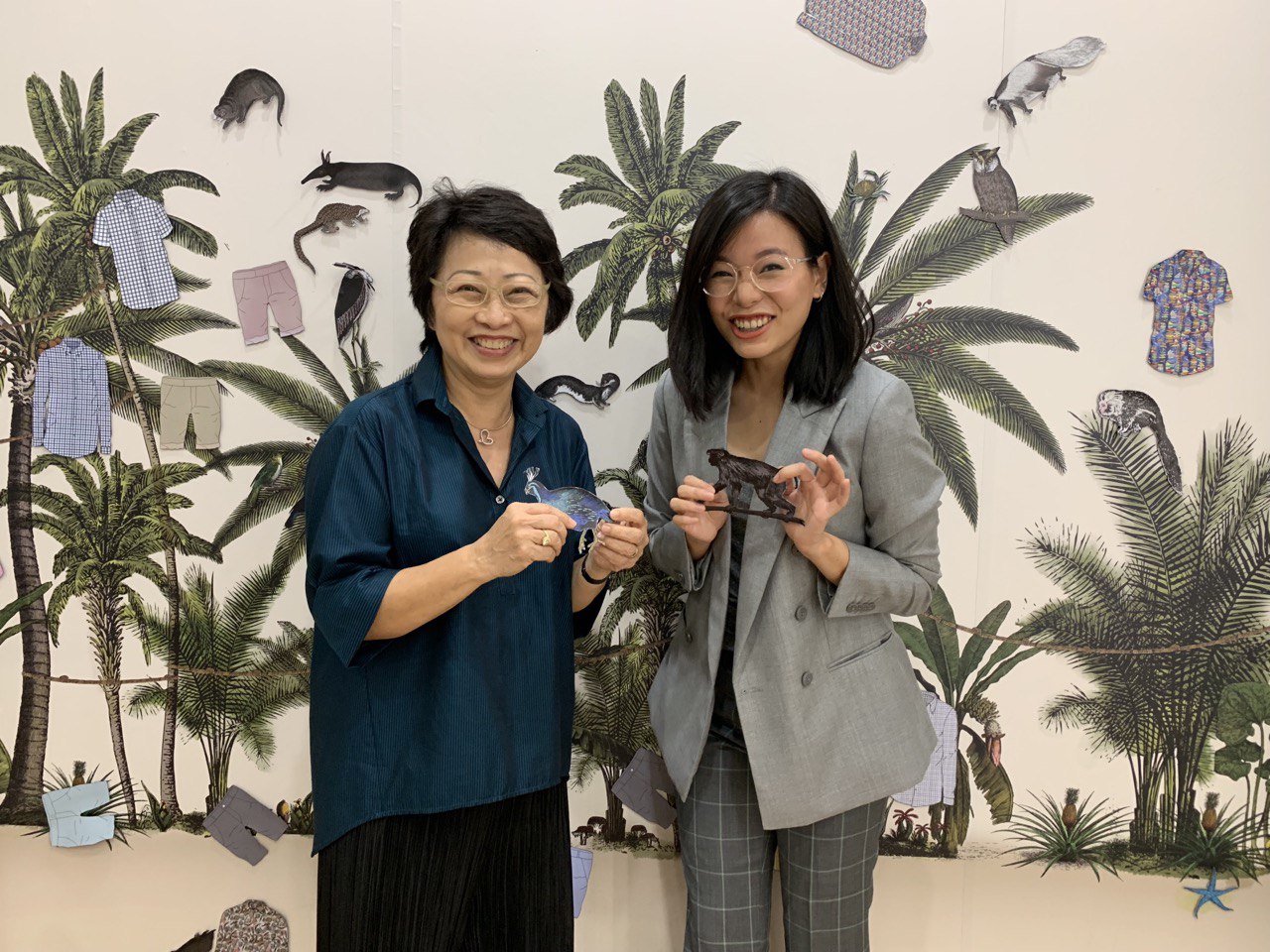
Chiang and her aunt, CYC’s Managing Director, Fong Loo Fern, holding magnets from the kids’ corner at their flagship store in Capitol Piazza, where kids can play while their dads get measured for shirts. Photo from Cara Chiang’s Instagram.
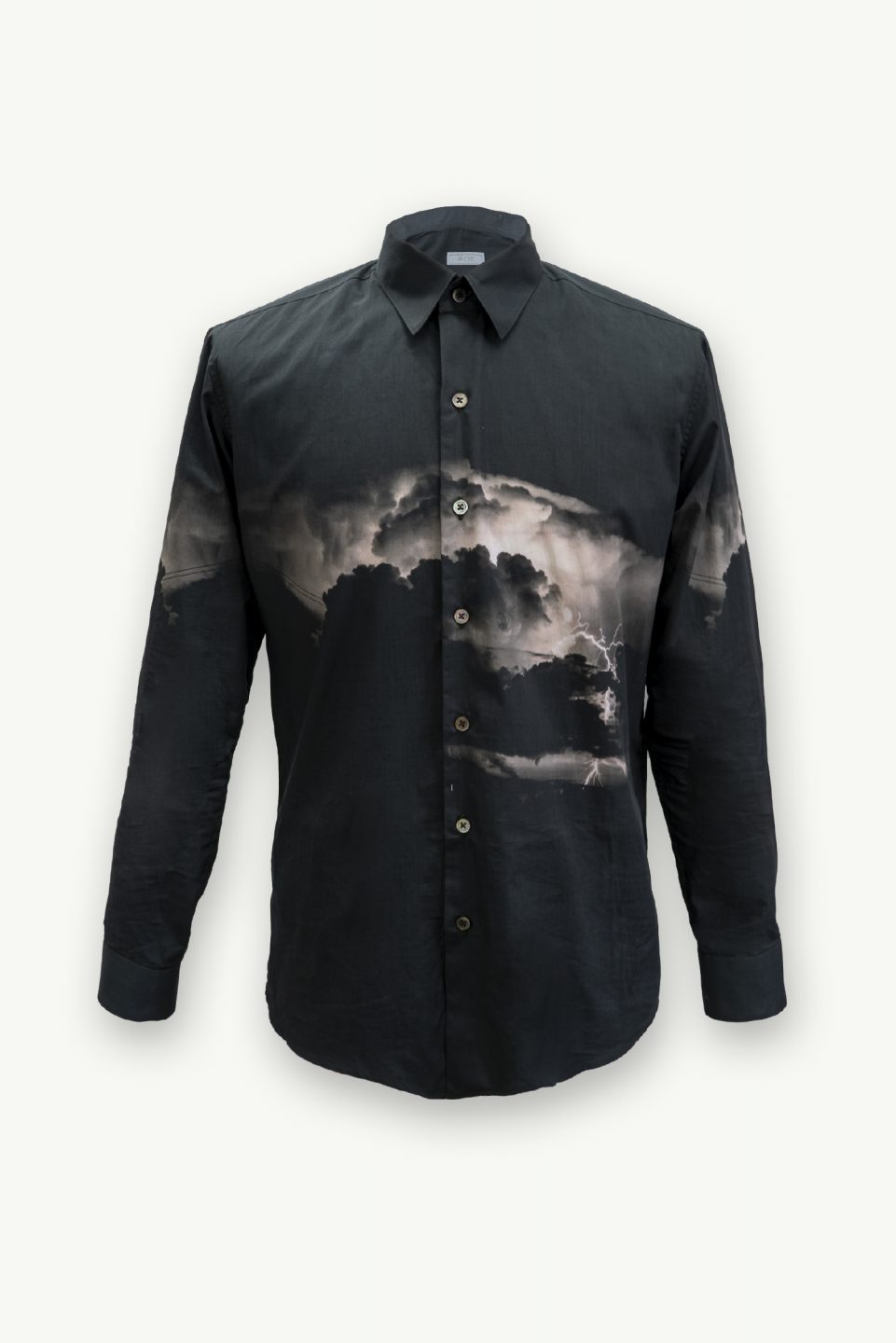
One of two designs from Cara’s entry to Singapore Stories, inspired by the uncertainty and darkness her great-grandparents must have felt on their boat journey to Singapore in 1935. She thought of it when going through “a very dark period” after her father’s sudden passing in June. The other three pieces reflect the migrants’ joy and hopes.

Chiang developed the prints for her entries through a process called datamoshing, adding passages from the Bible to add a “glitch” to the picture. She picked Psalms 13 (upper left) for the theme of sorrow. “To me, the abstract nature seems to profess the lament embedded in the code of the image,” she said.
“My aunt said, ‘Well, if you want, we could have you on board. You could do some marketing for us. And who knows, maybe even one day take over.’”
There isn’t as such a target date for Chiang to take over the reins.
“My aunt really relies on God’s timing. When it feels right, we will know,” she says.
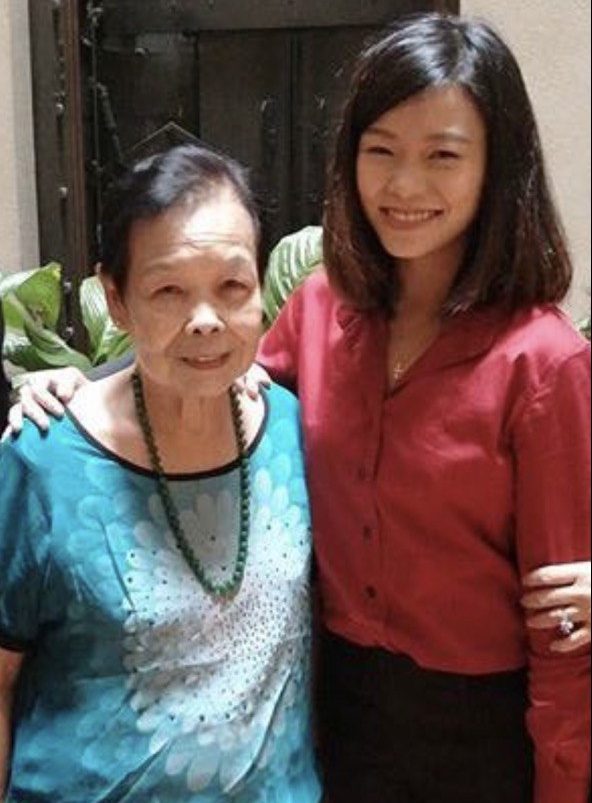
Chiang and her Ah Nia (Shanghainese nickname for grandma). Chan May Lee came to Singapore in 1935 when she was 13 to learn the tailoring trade in CYC, and managed the production in the CYC factory for 66 years. She passed away at the end of July.
Chiang has since been shaking up the brand with her millennial sensibilities, while keeping true to its sharp Shanghainese tailoring and deep Singapore roots.
What she is doing in the business is an answer to a prayer that she wrote in her journal when she was 19.
She is involved in fashion design, creating marketing materials and concept photoshoots for CYC. She also designs the brand’s website, writes content, and oversees its social media.
What she is doing in the business is an answer to a prayer that she wrote in her journal when she was 19: “I did not know what I wanted to do when I grew up. But I told God that I hoped to create in the broadest sense.”
She wrote her goals in her journal “so that I know that I am on the right path” and dedicated them to God when she later came back to Him.
“I was telling God that I wanted to bring more of His love and creations into this world through design,” Chiang says.
She’s behind the addition of localised whimsical prints. A couple are inspired by HDB corridors – with Mickey Mouse and bicycles, or with teddy bears hanging to dry and green rubbish bins.
They are part of her conscious efforts to “bring joy to those around her”. This was sparked by a surreal experience in a columbarium.
The tomb of a teen
A breakup in 2018 led her to see a counsellor in church.
At the church, she followed a sign pointing to the columbarium since she had time to spare before her appointment.
“The columbarium was air-conditioned and lined with white and grey marble. There were trays of lit candles, and natural light filled the space. I had never been to such a beautifully-designed columbarium,” she recalls.
“As I walked through, I started noticing the dates and pictures on the headstones of the niches. I saw that some were young boys and girls, aged 16, 17 and 18.
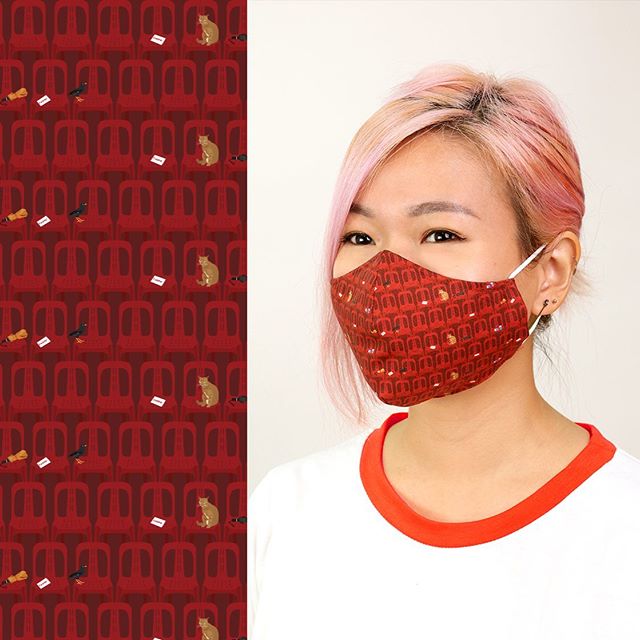
Chiang wears a CYC reusable mask of fabric with the motifs of kopi tiam chairs with mynas, sleeping cats, umbrellas and chope tissues.
“There was one particular headstone for a boy that had a table in front of it, with a book and some cards. For someone to build this ode to this boy and the things he loved, it was very clear that he had people who loved him dearly.
“I remember thinking: His time on earth is up. Mine isn’t. What was I doing with my time?”
“Without warning, I started to cry.
“I remember thinking: His time on earth is up. Mine isn’t. What was I doing with my time? I had been feeling sorry for myself and draining the resources of my – quite patient – friends by making them listen to me talk about the same thing over and over again.
“I decided I needed to make the most of the chances that I still have. It was clear that this boy brought a lot of joy to people’s lives. And I can still try to bring joy to people’s lives, to try to make this world a better place. I needed to live with purpose.”
Her steering wheel
Chiang carried on to the counselling session, and towards the end, the counsellor suggested: “Why not go back to church?”
She was unable to find a reason to say no.
“I would talk to God and pray. But He wasn’t my steering wheel. He was my spare tyre.”
Chiang had grown up in a Christian household, but admits she was drawn to the secular world. “I am quite an explorative person, I wanted to live more. But it led me further and further away from God. And I wanted to live my way, not God’s way.
“I would still talk to God and pray. But He wasn’t my steering wheel. He was my spare tyre,” she says, quoting Dutch Holocaust survivor Corrie Ten Boom.
She had not been to church in years. But she had friends from the Methodist church of her childhood who reached out to her every few months. “I messaged them and told them that I would be coming that Sunday.
“When we met at church, I felt welcome. Conversations flowed easily, and there was a comforting familiarity about the place and the people.”
At church, she reconnected with old friends. Two of them now form her 3-2-1 group for prayer support and encouragement.
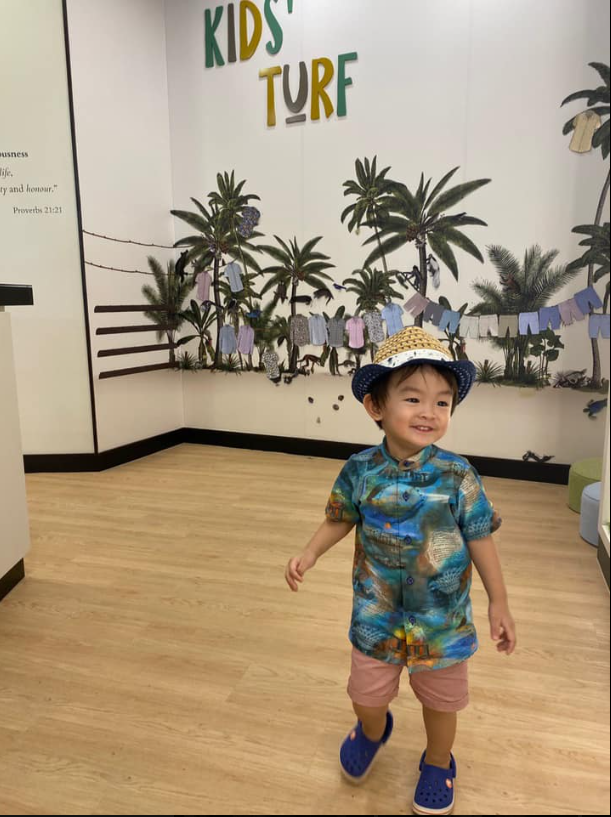
Chiang’s former Sunday School teacher is poet and ReadAble co-founder Amanda Chong. Chong’s Notes from a Colonialist, 2065, features in a CYC print, as seen in this child-sized shirt. Photo from CYC’s Facebook.
“A lot of people God sent were already in my life. But I’m now able to appreciate them, love them better, and see them for who they are, and how God sees them.”
Another “new-old friend” is an American she met in Hawaii at Youth with a Mission’s (YWAM) Discipleship Training School when she was age 21. Chiang spent six months there, and two-and-a-half months in Panama.
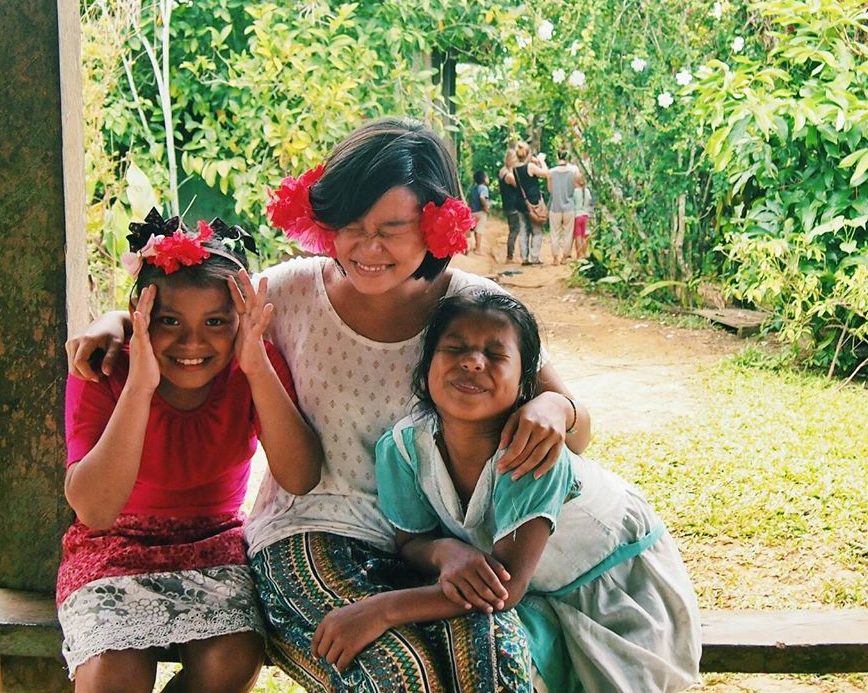
Chiang with kids in Panama. “Fifteen young people from all over the world stayed in one room. We took 10-second showers in cold water. We visited prisons, women’s shelters and slums. It was a life-changing trip. Having a window into the lives of others, especially those of the less privileged, changed my perspective of my problems, as well as my world view.”
As Cara started going to church again, “I began inviting God into my day to day, making prayer a priority every morning”.
Over time, she found “a peace that can only come from God”.
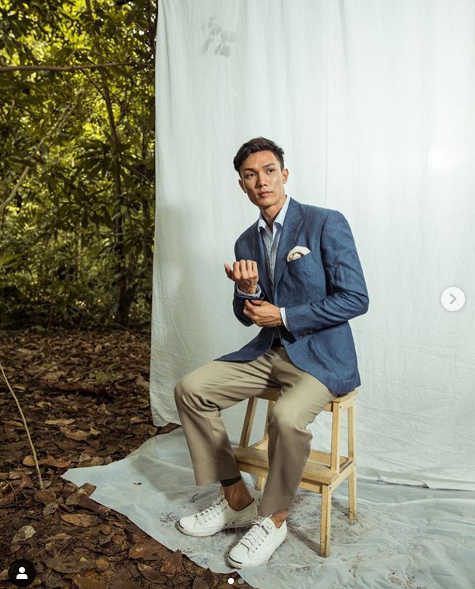
Chiang attempts to show the beauty of God’s handiwork through design – whether in a photoshoot in a forest, or in colours from nature like ocean blue and tree bark in this collection. Photo from CYC’s Instagram.
“Now that I am back to God, I ask, ‘Since You created me, show me what You created me to do. And who You created me to be. I don’t want to be who society wants me to be, or who I think I want to be, or what it would be good to be.
“I just want to be totally comfortable with who You created me to be and embrace, and somehow use, that to help others if I can.”
Let go, let God
“These days when I feel helpless, I give it to God. And somehow He shows me the way, and gives me what I need, in small and unexpected ways, at the right time,” says Chiang.
“I began inviting God into my day to day, making prayer a priority every morning”.
“Recently, I was going through a bit of a low time, a feeling that was exacerbated by the Circuit Breaker restrictions. I was praying to God for hope.
“The next morning, my dad surprised me with a black pancake with bright orange coconut filling, which ignited my imagination and my taste buds. It was a lovely surprise.
“And then I received a long, encouraging text from my friend, Amanda, peppered with timely verses which encouraged me to keep going, even when the road ahead appeared dark and unlit.
“God meets me where I am, no matter how high or how low I’m feeling.”
“These little things added up to show me that I am loved, and I am not alone. God meets me where I am, no matter how high or how low I’m feeling. And this begins with prayer.
“It’s a very ‘let go, let God’ kind of philosophy.
“From my own experience, speaking to God and allowing Him to speak to me through verses is a thousand times better than trying to deal with difficulties on my own. So much so that the latter is no longer an option.”
Going out with honours
Psalms 13 and 139 especially speak to her as “reminders to trust in God’s faithfulness even in the dark times”.
Chiang’s dad, Chiang Kwok Shong, passed away suddenly from a heart attack at age 60 in the second half of June. His mother – Chiang’s Ah Nia (Shanghainese nickname for grandmother) – passed on six weeks later.
Of her dad, Chiang says: “He went out with honours, as one of my friends described.
“There were people that I’ve never met before who were crying over his coffin. I was really surprised and happy to know that he wasn’t just a great dad to me but a great dad to so many people.
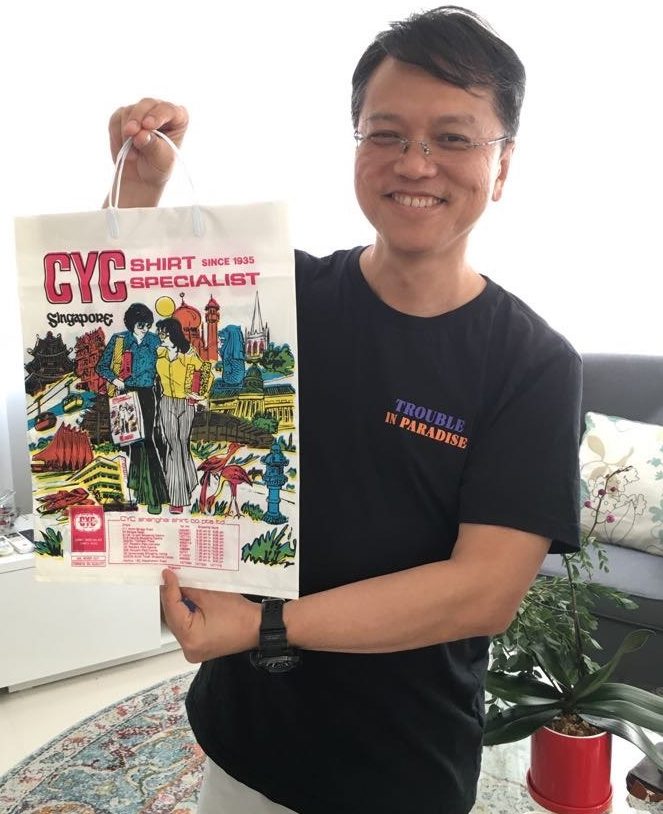
Chiang’s late father, Chiang Kwok Shong, with a vintage CYC plastic bag that his friend had found.
“They had very personal stories about how my dad helped them out of really tight spots. Like when their businesses were doing really badly and they were really worried, my dad would always try his best to introduce them to people who could help, and he often did it successfully.”
There was stories of how “he was always such a good listener, and he always saw the best in people”.
“To be honest, I’m still trying to be like that. I’m not really at that level.”
“God doesn’t just see things in our limited perspective, He sees the grand plan.”
She found herself “lamenting a lot to God and having a lot of questions” after her dad’s passing.
“But even when I’m feeling really low, I’m still praying and trusting in God, and somehow He sends the right people at the right time.”
A friend brought an “interesting perspective on life and death, which gave me a lot of comfort that I should trust that God sees the big picture”.
“She said God doesn’t just see things in our limited perspective, He sees the grand plan. So whatever happens – like my dad passing at a fairly early age – in the grand plan, would make sense. I just don’t know it yet. I need to just keep trusting.”
After her Ah Nia’s passing, she tells Salt&Light: “By God’s grace we will come out stronger. I consider that our present sufferings are not worth comparing with the glory that will be revealed in us.” (Romans 8:18)
“People thought we were so spiritual but we were desperate!”: How God grew Singapore brand Supermama
Are deeper, 3-2-1 relationships the first step to healing a fragmented world?
We are an independent, non-profit organisation that relies on the generosity of our readers, such as yourself, to continue serving the kingdom. Every dollar donated goes directly back into our editorial coverage.
Would you consider partnering with us in our kingdom work by supporting us financially, either as a one-off donation, or a recurring pledge?
Support Salt&Light